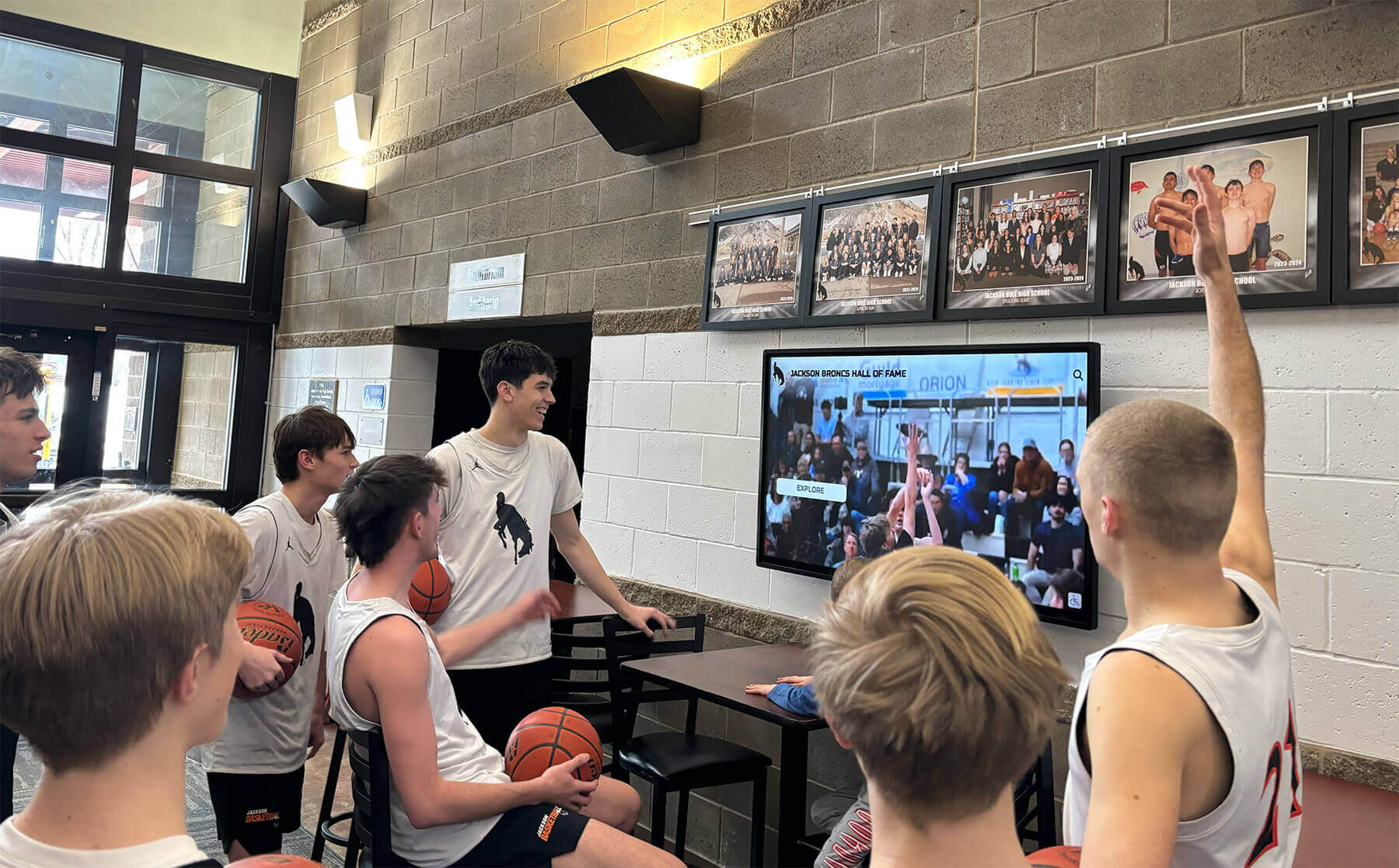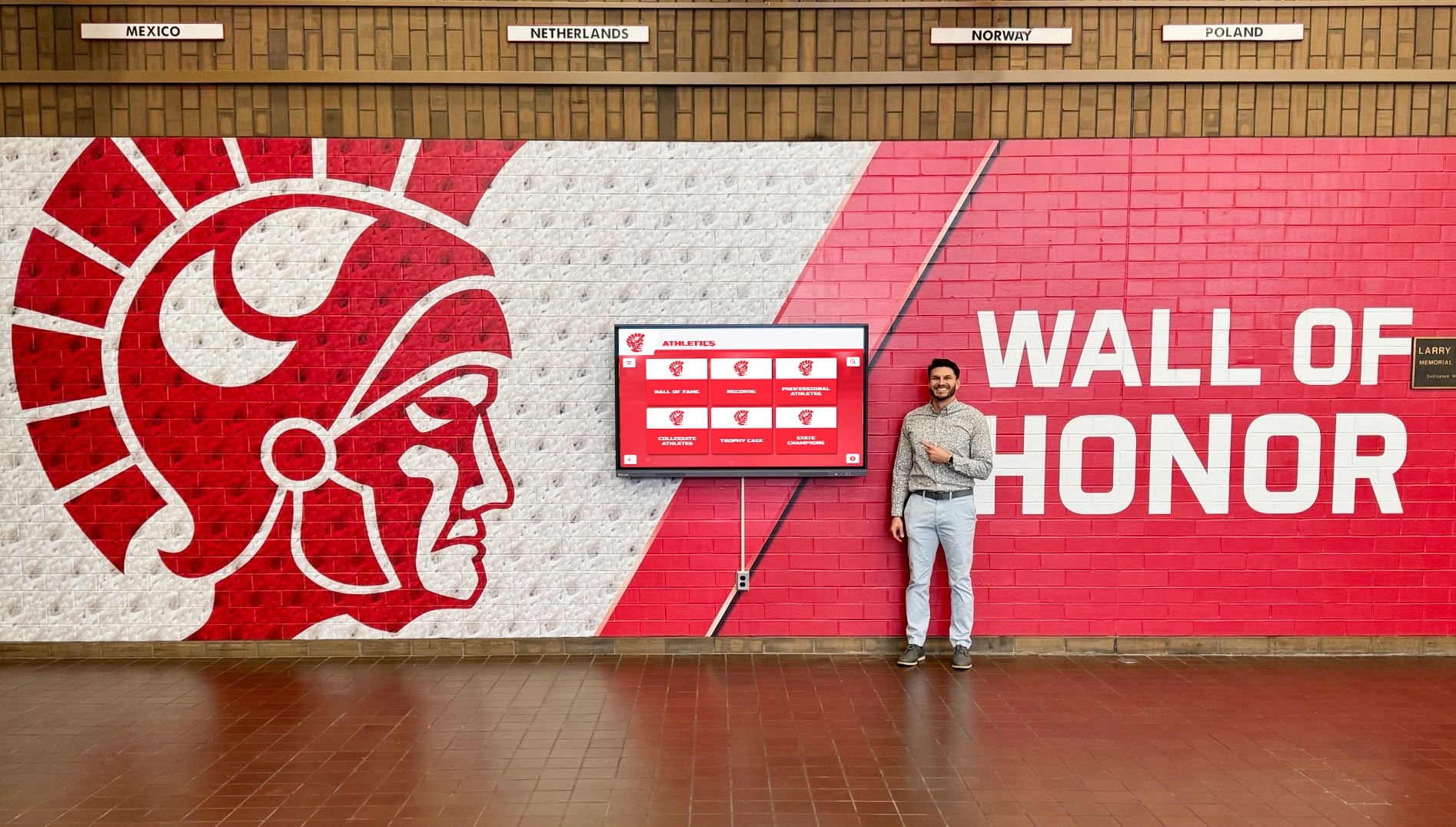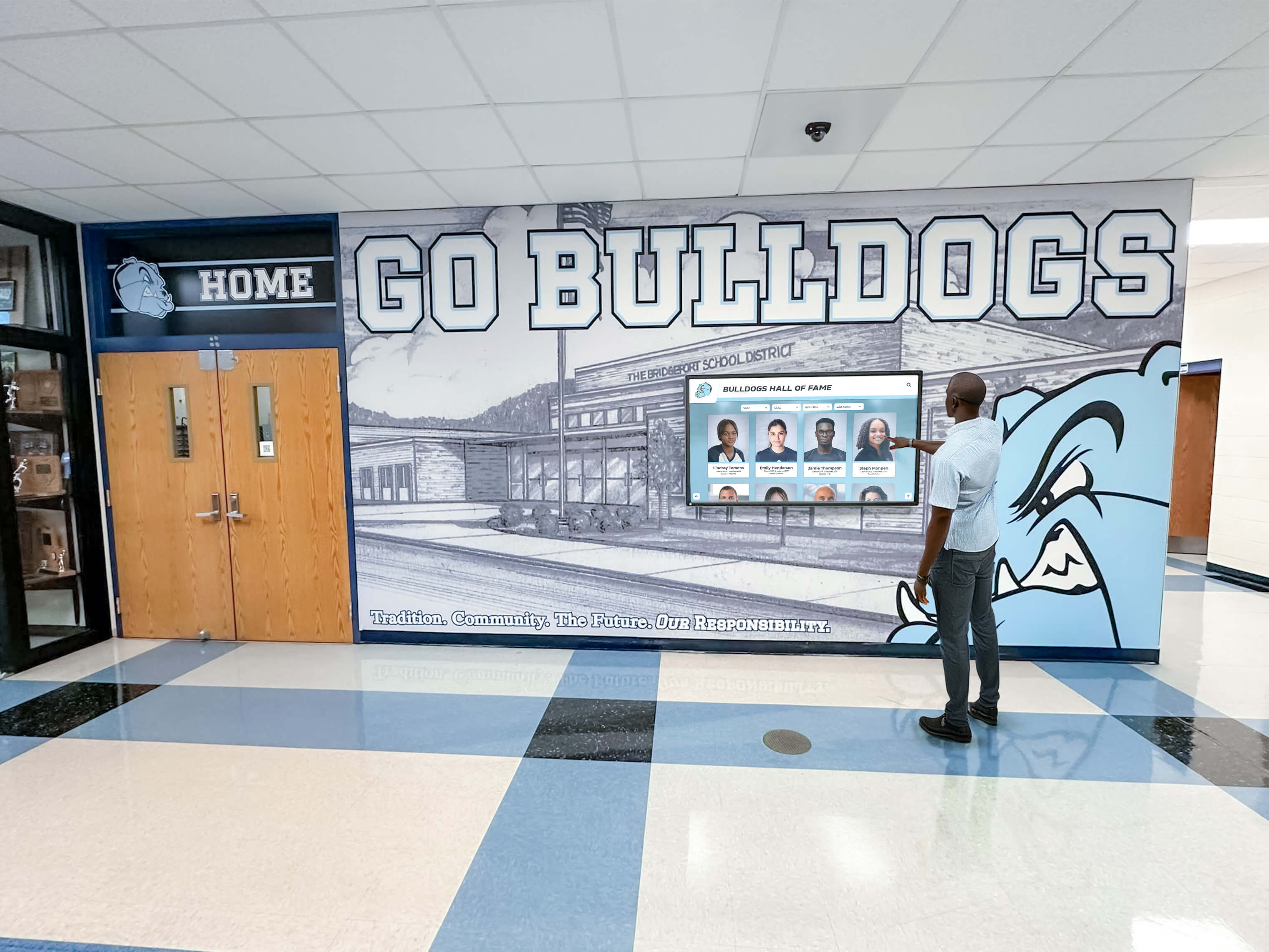Key Takeaways
Comprehensive guide to parent and family engagement through digital recognition programs. Learn proven strategies for building stronger school-home connections and increasing family involvement.
Understanding the Impact of Parent and Family Engagement
Before implementing engagement strategies, understanding why family involvement matters so profoundly helps schools prioritize resources and maintain commitment when challenges arise.
The Research Behind Parent Engagement
Decades of educational research consistently demonstrate that parent and family engagement significantly impacts student outcomes across all demographic groups and grade levels. According to research from the U.S. Department of Education, students with engaged families, regardless of income or background, are more likely to earn higher grades and test scores, enroll in higher-level academic programs, develop stronger social skills and behavior, have better attendance records, complete homework more consistently, and graduate and pursue post-secondary education.
The impact proves particularly significant for students from historically underserved communities, where strong family engagement helps counterbalance systemic inequities and resource gaps that might otherwise limit educational opportunities.

What True Parent Engagement Means
Parent engagement extends far beyond traditional involvement like attending open houses or chaperoning field trips. Authentic engagement encompasses partnership relationships where families and schools work collaboratively to support student learning and development through shared decision-making about school policies and programs, regular two-way communication about student progress and school activities, home learning environments that reinforce school expectations, advocacy for appropriate educational services and opportunities, and active participation in school community and governance.
This partnership model recognizes that families possess unique knowledge about their children’s strengths, challenges, interests, and contexts that schools need to provide effective education. Similarly, educators bring professional expertise about learning, development, and instruction that helps families support their children effectively.
Common Barriers to Family Engagement
Understanding what prevents family engagement helps schools design strategies that address real obstacles rather than assuming families simply don’t care:
Time and Schedule Constraints: Working parents, especially those with multiple jobs or inflexible schedules, struggle to participate during traditional school hours. Single parents and families with multiple children face particularly significant time pressures.
Language and Cultural Differences: Families who speak languages other than English or come from cultural backgrounds where parent-school relationships differ from American norms may feel confused, intimidated, or unsure how to engage with schools.
Previous Negative Experiences: Parents who had negative school experiences themselves or previous conflicts with schools may approach engagement opportunities with understandable hesitancy or defensiveness.
Feeling Unwelcome or Judged: Schools sometimes inadvertently create environments where families—particularly those from marginalized communities—feel they don’t belong or that staff judges their parenting, economic circumstances, or family structures.
Lack of Clear Information: Many parents want to be involved but don’t know what schools need, how to help their children academically, or what engagement opportunities exist.

Creating Welcoming Environments for All Families
Before implementing specific engagement strategies, schools must establish foundational cultures where all families genuinely feel welcomed and valued.
Physical Environment and First Impressions
The physical environment communicates powerful messages about whether families belong in school spaces. Creating welcoming environments requires clear, multilingual signage helping families navigate buildings confidently, comfortable seating in entrances and offices inviting families to stay rather than rush through, visible celebration of student achievement and school pride, family-friendly spaces designed for parent use including parent resource centers, and displays reflecting the diversity of school communities through culturally representative imagery and languages.
Front office staff play particularly critical roles in creating welcoming environments. When the first school personnel families encounter demonstrate warmth, helpfulness, and cultural competence, positive tones get set for all subsequent interactions.
Communication That Connects
How schools communicate fundamentally shapes whether families feel informed, valued, and connected. Effective communication practices include proactive positive contact initiated before problems arise, multiple communication channels recognizing that families prefer different methods, consistent messaging ensuring families receive important information reliably, two-way dialogue where families can easily provide input and ask questions, and translated materials enabling participation regardless of language spoken at home.
Modern solutions like digital recognition and communication platforms enable schools to maintain consistent, engaging communication while celebrating achievement in ways that strengthen school-home connections.
Cultural Competence and Inclusion
Schools serving diverse communities must demonstrate genuine cultural competence through staff training on cultural humility and implicit bias, multilingual materials and interpretation services, recognition and celebration of diverse cultural traditions and holidays, recruitment of diverse staff reflecting student demographics, and explicit anti-discrimination policies and practices protecting all families.
Cultural competence extends beyond surface-level multicultural celebrations to genuine respect for different family structures, communication styles, educational values, and approaches to child-rearing that may differ from mainstream American norms.
Digital Recognition as a Family Engagement Strategy
Modern digital recognition systems create powerful opportunities for family engagement by making student achievement visible, accessible, and shareable in ways traditional methods cannot match.
Why Recognition Matters for Family Engagement
Parents naturally want to see their children recognized and celebrated for accomplishments. Traditional recognition approaches like trophy cases or physical plaques have significant limitations including limited space forcing selective recognition that excludes many students, static displays that don’t engage contemporary digital-native families, information accessible only during school visits, and inability to share or preserve recognition easily.
Interactive digital recognition displays transform recognition from space-constrained static information into engaging, comprehensive celebration that families can interact with, share, and access in multiple contexts.

How Digital Recognition Engages Families
Digital recognition platforms engage families through multiple mechanisms creating rich engagement opportunities:
Visible Celebration During School Visits: When families visit schools for any reason—dropping off forgotten items, attending events, picking up students—digital displays in main entrances or common areas showcase student achievements. Parents seeing their own children or classmates recognized creates pride and positive association with school visits.
Conversation Starters: Recognition displays give families and students specific topics to discuss. Rather than generic “How was school?” conversations, families can ask about achievements they saw recognized, classmates’ accomplishments, or school history displayed on interactive systems.
Social Media Sharing: Digital platforms enable schools to share recognition through social media channels that families actively use. When schools post achievement recognition, families share these posts within their networks—exponentially amplifying positive messaging about both recognized students and schools overall.
Remote Access: Online access to recognition systems allows families who cannot easily visit campuses to still see their children’s achievements celebrated. This proves particularly valuable for working parents, deployed military families, or relatives living far from schools.
Multi-Generational Connection: Comprehensive historical recognition helps families understand institutional context and traditions. Parents and grandparents who attended the same schools can explore their own recognition alongside their children’s achievements, creating powerful multi-generational conversations and connections.
Implementing Recognition Systems That Engage Families
Schools implementing digital recognition for family engagement should consider strategic placement in high-traffic family areas including main entrances, athletic facility lobbies, performing arts centers, cafeterias, and office waiting areas where families naturally gather.
Content should emphasize diverse achievement categories ensuring every family eventually sees their children recognized through academic excellence including honor roll and subject-specific achievements, athletic accomplishments from team championships to individual records, arts and creativity celebrating performances, exhibitions, and competitions, character and service recognizing citizenship and community contribution, and participation and improvement acknowledging effort alongside outcomes.
Solutions like those from Rocket Alumni Solutions provide comprehensive recognition platforms specifically designed for educational communities, combining intuitive content management with powerful family engagement features and dedicated support ensuring long-term success.
Traditional Parent Engagement Strategies Enhanced by Technology
While innovative approaches matter, schools should also enhance time-tested family engagement strategies through modern technology integration.
Parent-Teacher Communication and Conferences
Parent-teacher conferences remain crucial engagement opportunities, but technology can significantly enhance their effectiveness through online scheduling allowing families to book convenient times independently, pre-conference surveys gathering family questions and concerns efficiently, digital portfolios showing student work and progress visually, virtual conference options enabling participation despite schedule or transportation barriers, and post-conference follow-up maintaining momentum between formal meetings.
Modern communication platforms enable ongoing dialogue extending beyond twice-yearly formal conferences to create continuous partnership.

Volunteer Programs and Family Participation
Family volunteer programs build school connection while providing valuable support, and technology enhances these programs through online volunteer systems allowing flexible sign-up and management, virtual volunteer opportunities for families unable to visit schools physically, skill-based volunteering matching family professional expertise with school needs, micro-volunteering enabling small time commitments that fit busy schedules, and volunteer recognition through digital appreciation displays celebrating family contributions.
Flexible volunteer structures acknowledge that parents contribute in diverse ways—not just traditional classroom volunteering but also behind-the-scenes support that equally deserves recognition and appreciation.
Family Education and Resource Programs
Schools can support families as children’s first teachers through parent education programming on curriculum topics, homework help strategies, developmental stages, college planning processes, and social-emotional learning. Technology enables flexible delivery through recorded workshops families can access on-demand, online resource libraries providing information when families need it, mobile apps with tips and activities, virtual discussion groups connecting families facing similar challenges, and personalized resources addressing specific family circumstances.
School Events and Celebrations
Traditional school events create important community-building opportunities that technology can enhance through hybrid attendance options streaming events for remote family participation, event apps providing schedules and logistics, photo galleries sharing event memories with broader communities, interactive elements engaging families actively rather than as passive audiences, and multilingual information ensuring all families understand programming.
Events celebrating student achievement—academic recognition ceremonies, athletic banquets, performing arts showcases, graduation—create particularly powerful family engagement when paired with permanent digital recognition ensuring celebration extends beyond single events.
Innovative Family Engagement Strategies for Modern Schools
Beyond enhancing traditional approaches, schools should consider innovative strategies specifically designed for contemporary family contexts and expectations.
Mobile-First Communication Strategies
Many families, particularly those from lower-income communities, access internet primarily through smartphones rather than computers. Mobile-first strategies recognize this reality through text message communication for time-sensitive updates, mobile-optimized websites and portals ensuring information accessibility, school apps providing centralized access to schedules, grades, and communications, push notifications alerting families to important information, and QR codes connecting physical spaces to digital information.
Effective mobile communication respects family time through clear opt-in systems, reasonable frequency avoiding message fatigue, appropriate timing avoiding late-night or early-morning disruptions, and relevant content ensuring messages provide genuinely useful information.
Virtual and Hybrid Engagement Options
Technology enables family engagement regardless of physical presence through livestreamed events allowing remote attendance, recorded content available on-demand, virtual parent cafes and discussion groups, online curriculum nights introducing academic programs, and digital showcases displaying student work and projects.
These options particularly benefit families with inflexible work schedules, transportation barriers, health concerns, or children in multiple schools requiring presence in multiple locations simultaneously.

Family Voice and Leadership Opportunities
Authentic engagement requires families to have genuine influence over school decisions and culture through parent advisory councils with real decision-making authority, family representation on school improvement teams, parent leadership development programs, family surveys and feedback mechanisms with demonstrated action on input, and family-led programming where parents design and implement engagement activities.
When families see their input genuinely shaping school policies, programs, and practices, engagement deepens from superficial participation to authentic partnership and advocacy.
Peer-to-Peer Family Connections
Schools can facilitate family networking creating support systems extending beyond school-family relationships through new family orientation programs connecting newcomers with experienced families, grade-level family socials building peer relationships, affinity groups for families sharing common experiences or backgrounds, parent mentorship programs pairing experienced with new families, and communication platforms enabling direct parent-to-parent connection.
These peer connections often prove more accessible and comfortable than formal school interactions, particularly for families from marginalized communities who may feel intimidated by institutional authority.
Recognition of Family Contributions
Just as student recognition builds engagement, acknowledging family contributions strengthens ongoing participation through volunteer appreciation events and recognition, digital displays celebrating family support and involvement, family awards recognizing exceptional engagement, thank-you communications from students and staff, and storytelling highlighting family contributions to school success.
Recognition demonstrates that schools notice and value family engagement, increasing likelihood of continued and expanded participation.
Addressing Specific Family Engagement Challenges
Even well-designed engagement strategies encounter obstacles requiring thoughtful problem-solving and adaptation.
Engaging Families from Diverse Linguistic Backgrounds
Schools serving multilingual communities must provide genuine language access through professional translation and interpretation services for important communications and events, bilingual staff available to answer questions and provide support, translated materials in major home languages of school communities, multilingual signage and displays, and recognition that machine translation, while helpful, cannot fully replace human cultural and linguistic expertise.
Language access represents a legal requirement under civil rights law and an educational imperative ensuring all families can support their children’s education regardless of home language.
Connecting with Families Facing Economic Challenges
Families experiencing economic stress may prioritize survival needs over school engagement, but schools can reduce barriers through elimination of fees for family engagement activities, provision of childcare during events and meetings, food at family events removing meal planning as obstacle, transportation support when possible, and sensitivity to economic realities in all programming and communications.
Economic considerations should inform event scheduling, volunteer expectations, fundraising approaches, and school supply policies ensuring that financial constraints never prevent family engagement or student participation.

Engaging Families Who Had Negative School Experiences
Parents who struggled academically, dropped out, or experienced discrimination often approach schools with understandable apprehension. Building trust requires explicit welcoming messages emphasizing that all families belong, avoidance of deficit language about families or students, focus on student strengths and potential rather than only challenges, patience allowing relationships to develop gradually, and recognition that rebuilding trust after past harm takes sustained consistent action.
Schools must acknowledge that some family hesitancy about engagement reflects rational responses to previous negative experiences rather than lack of caring about children’s education.
Overcoming Time and Schedule Barriers
Working parents, particularly those with inflexible schedules or multiple jobs, genuinely cannot participate during traditional school hours. Accommodations include varied meeting and event times spanning early morning, evening, and weekend options, virtual participation alternatives, asynchronous communication and information access, recognition that many families contribute through home support rather than school presence, and appreciation for all forms of engagement rather than valuing only visible in-school participation.
Re-Engaging Families After COVID-19 Disruptions
The COVID-19 pandemic disrupted school-family relationships and engagement patterns. Rebuilding requires acknowledgment of pandemic trauma and its ongoing impacts, flexibility as families reestablish routines, hybrid options maintaining virtual access many families grew comfortable with, renewed relationship-building starting fresh rather than assuming previous connections remain intact, and understanding that some families may need extended time to feel comfortable with in-person school presence again.
Measuring and Improving Family Engagement
Systematic assessment enables schools to understand what works, identify gaps, and continuously improve engagement efforts.
Key Metrics for Family Engagement
Schools should track multiple indicators of family engagement including participation rates in events, conferences, and volunteer opportunities, communication engagement through email open rates, app usage, and survey responses, family satisfaction survey results, demographic participation patterns identifying underserved segments, student outcome correlations showing how engagement links to achievement, and longitudinal trends showing improvement over time.
Disaggregated data revealing which families engage and which remain disconnected proves more valuable than overall averages that might mask significant equity gaps.
Gathering Family Feedback
Regular input from families guides continuous improvement through annual family engagement surveys assessing satisfaction and gathering suggestions, focus groups exploring topics in depth with diverse family representatives, informal feedback collection through conversations and suggestion systems, exit surveys when families leave schools understanding why, and family representation on school improvement planning teams.

Using Data to Guide Strategy
Assessment data should drive strategic decisions about resource allocation prioritizing highest-need areas, program adjustments based on what families actually value and use, targeted outreach to underengaged family segments, staff professional development addressing engagement challenges, and communication about improvements demonstrating that family input produces real change.
Data-informed engagement planning proves more effective than assumptions about what families want or need, particularly when assumptions reflect staff demographics and experiences that may differ significantly from those of families served.
Building Sustainable Family Engagement Systems
One-time engagement initiatives rarely create lasting culture change. Sustainability requires systematic approaches embedded in institutional operations.
Institutional Commitment and Resources
Sustainable engagement requires explicit inclusion in school improvement plans with specific goals and strategies, dedicated staff positions or significant portions of existing roles focused on family engagement, adequate budget allocation for programming, materials, and technology, board policies establishing family engagement expectations and accountability, and leadership commitment demonstrated through visible priority and resource investment.
Family engagement cannot simply be an add-on responsibility for already-overextended staff. It requires intentional resource allocation commensurate with its importance for student success.
Staff Capacity and Professional Development
All school staff—not just designated family engagement coordinators—need skills and knowledge for effective family partnership through pre-service and ongoing professional development on family engagement strategies, cultural competence training recognizing and addressing bias, communication skills for difficult conversations, understanding of families’ circumstances and challenges, and evaluation and feedback on family engagement performance.
Family engagement should represent an expectation and skill set for all educators rather than the specialized expertise of a few individuals.
Creating Family-Friendly Policies and Practices
Policies and practices should systematically support rather than impede family engagement through flexible meeting times and formats, elimination of unnecessary barriers to family presence, clear communication protocols ensuring consistent information flow, welcoming procedures when families visit schools, and explicit commitment to treating all families with respect regardless of background or circumstances.
Regular policy review through a family engagement lens helps identify inadvertent obstacles and opportunities for improvement.

The Role of Technology in Modern Family Engagement
Strategic technology use amplifies family engagement when it enhances rather than replaces human connection and removes rather than creates barriers to participation.
Comprehensive Communication Platforms
Modern family communication platforms consolidate multiple functions including grade and attendance access, assignment and calendar information, direct messaging between families and staff, event registration and volunteer sign-up, and document sharing and resource distribution.
Effective platforms provide mobile access, multilingual interfaces, intuitive navigation requiring minimal technical literacy, and integration with other school systems reducing duplicate data entry.
Digital Recognition and Celebration Systems
As explored throughout this guide, digital recognition platforms create powerful family engagement through visible celebration of student achievement, accessible information about school programs and history, social sharing capabilities extending recognition reach, and multi-generational connection to school traditions.
Comprehensive recognition systems from providers like Rocket Alumni Solutions specifically serve educational communities’ needs, providing intuitive content management, engaging presentation, and reliable technical support that enables sustainable long-term operation.
Virtual and Hybrid Event Technology
Technology enabling remote family participation removes significant engagement barriers through livestreaming of performances, ceremonies, and events, video conferencing for meetings and conferences, recorded content available on-demand, and interactive virtual experiences allowing meaningful remote participation.
These technologies particularly benefit families with transportation challenges, inflexible work schedules, health concerns, or multiple children in different schools creating scheduling conflicts.
Data and Assessment Tools
Technology enables more sophisticated understanding of family engagement through digital surveys and feedback collection, participation tracking across multiple engagement types, communication analytics showing what messages resonate, demographic analysis identifying equity gaps, and longitudinal tracking monitoring improvement over time.
This data helps schools understand what works, allocate resources effectively, and demonstrate the impact of family engagement investments.
Conclusion: Building Lasting School-Family Partnerships
Authentic parent and family engagement represents a critical yet underutilized strategy for improving student achievement, strengthening school culture, and building educational equity. When schools move beyond superficial involvement to genuine partnership where families are welcomed, valued, informed, and empowered, students benefit from comprehensive support systems that extend learning and development far beyond school hours.
The most effective family engagement approaches combine time-tested strategies with innovative methods that address contemporary family realities—recognizing that modern families face different circumstances, use different communication tools, and hold different expectations than previous generations. Technology, particularly digital recognition and communication platforms, creates powerful new capabilities for engaging families when implemented thoughtfully to enhance rather than replace human connection.
Building sustainable family engagement requires more than sporadic initiatives or isolated programs. It demands systematic approaches with clear institutional commitment, adequate resources, skilled staff, family-friendly policies, continuous assessment, and sustained effort across years rather than months. Schools that make this investment discover that engaged families become powerful partners and advocates who strengthen educational experiences for their own children while contributing to improved outcomes for entire school communities.

Ready to Transform Your Family Engagement?
Discover how digital recognition platforms can strengthen your school-home connections while celebrating student achievement. Explore Rocket Alumni Solutions to see how schools nationwide are using interactive recognition technology to engage families, honor accomplishments, and build the school-family partnerships that drive student success.
From celebrating academic excellence to recognizing athletic achievements, the right digital recognition solutions make it easier to implement family engagement strategies that create lasting positive impact in your school community.





































